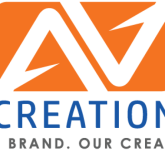Master SEO Studio Tools
SEO studio tools have transformed how we approach search engine optimization, making it more accessible for everyone trying to boost their online visibility. Search engine optimization—or SEO—is fundamentally about helping search engines understand your content while enabling users to find your site through search results.

While the vast majority of websites are found and added automatically as search engines crawl the web, mastering SEO requires the right toolset to truly excel. In our experience, beginners often struggle with knowing which features to prioritize first, especially when exploring capabilities like the SEO studio tools title generator. Furthermore, it’s important to understand that changes you implement will take time to be reflected in search results—sometimes hours, sometimes months.
In this comprehensive guide, we’ll walk you through everything you need to know about SEO studio tools, from basic setup to advanced techniques. After all, creating content that people find compelling and useful will likely influence your website’s presence in search results more than any other factor.
Getting Started with SEO Studio Tools
Understanding the core elements of search engine optimization becomes significantly easier with the right toolset. Let’s dive into what these powerful resources are and why they matter.

What are SEO Studio tools?
SEO Studio tools are comprehensive software applications designed to analyze, monitor, and optimize your website’s performance in search engine results pages. These digital solutions provide valuable insights into various aspects of SEO, helping you identify improvement opportunities and measure the success of your optimization efforts.
At their core, these tools encompass a wide range of functionalities:
- Keyword research and analysisto identify relevant high-performing terms
- Backlink trackingto analyze quality and quantity of links
- Technical SEO auditingto identify site issues
- On-page optimizationrecommendations for better content performance
- Competitor analysisto benchmark your strategies
The SEO Studio Tools title generator stands out as a particularly useful feature, helping create attention-grabbing, search-optimized titles that boost click-through rates.
Why beginners should care about them
In the current digital environment, SEO tools aren’t just helpful—they’re essential. For beginners, these tools translate complicated SEO concepts into actionable steps. Additionally, they provide data-driven insights that allow for informed decisions about optimization strategies.
Beginners should care because these tools save considerable time by consolidating multiple SEO tasks in one place. Instead of juggling dozens of websites for individual tasks, you work more efficiently with everything organized on a single platform.
Moreover, SEO represents one of the most cost-effective marketing strategies available. Although it requires investment of time and effort, the long-term benefits of organic search traffic can lead to sustained growth without continuous advertising spend.
How these tools fit into your SEO workflow
To integrate SEO Studio tools effectively into your workflow, follow a systematic approach. First, set clear objectives—whether improving keyword rankings, increasing traffic, or enhancing overall visibility.
Next, familiarize yourself with your chosen tool’s features and capabilities through tutorials and documentation. Before making any changes, conduct a thorough analysis of your website’s current SEO performance to establish a baseline.
Once you’ve identified areas for improvement, develop an action plan based on the tool’s insights. Prioritize tasks like optimizing your title tags, meta descriptions, headers, and content with your target keywords.
Finally, regularly monitor the impact of your SEO efforts using the tracking features. This consistent measurement allows you to evaluate strategy effectiveness and make necessary adjustments as you progress.
Setting Up Your SEO Studio Environment
Setting up an effective SEO workspace requires careful consideration of tools and platforms that align with your specific needs. Let’s explore how to establish your SEO foundation properly.
Choosing the right SEO Studio platform
Selecting the appropriate SEO platform depends primarily on your specific requirements and budget. Consider these crucial factors:
- Features and functionality– Evaluate which tools offer keyword research, on-page audits, and backlink tracking capabilities essential for your goals
- User-friendliness– Look for intuitive interfaces that save time and reduce learning curves
- Pricing structure– Compare plans and choose options fitting your budget, noting any data limits or extra costs
- Support options– Prioritize tools offering reliable documentation, tutorials, and responsive customer service
For beginners, Google’s free tools like Search Console and Looker Studio provide excellent starting points. Looker Studio (formerly Data Studio) offers impressive flexibility to ingest data from virtually any source, allowing your reporting to evolve as your needs change.
Installing and configuring your tools
Once you’ve selected your platform, follow these essential steps:
First, create a free account on your chosen platform. For tools like Looker Studio, this process is straightforward with your Google account.
Subsequently, connect your data sources. Most platforms offer numerous connectors—Google Search Console, Analytics, and partner services like Ahrefs are common options.
Configure your settings by selecting parameters relevant to your site—domain properties, search types, and specific metrics you want to track.
Understanding the dashboard and interface
Each SEO platform features a unique dashboard that provides high-level insights. In most interfaces, you’ll find:
The main dashboard typically displays keyword rankings, site optimization scores, and performance trends. For instance, some platforms use color-coding systems (green for top results, yellow for positions 2-10) to visualize ranking performance.
Dimensions (shown in green) represent categories within your dataset, whereas metrics (shown in blue) measure characteristics of those dimensions.
Look for recommendation sections that highlight improvement opportunities—these suggestions are invaluable for beginners still learning SEO fundamentals.
The average page optimization score (often on a scale of 1-100) helps measure your site’s overall SEO health, with scores above 70 typically indicating well-optimized sites.
Core Features You Should Master First
Once you’ve set up your SEO environment, mastering these four essential features will jumpstart your optimization journey.
Keyword research and analysis
Keyword research is the process of identifying exact words your audience uses in online searches. The right keywords drive traffic and boost visibility. When conducting research, evaluate metrics such as:
- Search volume – how often people search for the term
- Competitiveness – difficulty of ranking for that keyword
- Cost-per-click (CPC) – indicates commercial value
- Search intent – what users hope to find
Google Keyword Planner is considered the most accurate tool since its data comes directly from Google.
On-page SEO audits
Comprehensive audits examine your website’s technical issues and on-page elements. These evaluations identify optimization opportunities for meta tags, headings, and content quality. Regular audits help track improvements in title tags, descriptions, and overall content optimization.

Backlink tracking and analysis
Backlink analysis reveals links pointing to your website from external sources. This feature helps:
- Identify high-quality backlinks boosting authority
- Discover link-building opportunities
- Assess domain authority of linking sites
- Flag potentially harmful backlinks
SEO Studio Tools Title Generator: how to use it effectively
The Title Generator creates optimized, attention-grabbing headlines that improve click-through rates. To use it:
- Enter your main keyword
- Select your niche (optional)
- Review generated title options
- Choose one that best fits your content strategy
Advanced Tips for Better Results
Taking your SEO studio tools to the next level requires both strategy and technical know-how. Now let’s explore advanced approaches to maximize your results.
Using data insights to refine your strategy
Data without action is merely information. To truly leverage your SEO data, create a well-built dashboard that translates analytics into actionable insights. Research shows that 78% of consumers are more likely to repurchase when content is personalized based on data insights. Consequently, a user-centric dashboard enables you to understand audience behavior, helping you adjust your strategy accordingly.
Automating repetitive SEO tasks
SEO automation handles time-consuming tasks, freeing you to focus on strategy and creativity. Indeed, over 90% of workers report increased productivity with automation tools, and 85% experienced improved team collaboration. Consider automating keyword tracking, content audits, and performance reporting to scale your efforts efficiently.
Integrating with Google Search Console and Analytics
Combining Search Console and Analytics provides a comprehensive view of how users discover and experience your website. This integration lets you visualize organic search traffic from both sources in one dashboard using Looker Studio. Nevertheless, remember that metrics like clicks and sessions won’t match exactly due to different measurement methodologies.
Avoiding common beginner mistakes
Steer clear of these frequent pitfalls:
- Focusing on short-term results rather than building sustainable strategies
- Treating SEO as a one-time project instead of an ongoing process
- Making reactive changes during algorithm updates (62% of sites that do this see worse outcomes)
- Competing against yourself through keyword cannibalization
Conclusion
Mastering SEO studio tools requires patience and consistent effort, yet the results ultimately make this journey worthwhile. Throughout this guide, we’ve explored how these powerful tools transform complicated SEO concepts into actionable steps for beginners. Therefore, your approach should focus on building sustainable strategies rather than chasing quick wins.
First and foremost, start with the essentials – keyword research, on-page audits, backlink analysis, and title generation. After becoming comfortable with these core functions, you can gradually expand into more advanced techniques like automation and cross-platform integration. Nevertheless, remember that SEO success doesn’t happen overnight; search engines need time to recognize and reward your optimization efforts.
Many beginners feel overwhelmed when first exploring SEO tools. Still, breaking down the process into manageable steps as outlined in this guide makes the learning curve less steep. Additionally, free resources like Google Search Console provide excellent starting points before investing in premium platforms.
We believe the most successful SEO practitioners view these tools as companions rather than replacements for human judgment. Certainly, data-driven insights guide your decisions, but your understanding of audience needs ultimately determines content quality and relevance.
The digital landscape constantly evolves, though your foundation in SEO studio tools will serve you well through algorithm changes and industry trends. Consequently, the time you invest now in mastering these platforms will pay dividends through improved visibility, increased traffic, and better engagement with your target audience.
SEO studio tools have democratized search optimization, making professional-level insights accessible to businesses of all sizes. Above all, they provide the framework for continuous improvement – allowing you to measure, refine, and elevate your online presence with confidence.
Q1. What is Master SEO Studio Tools?
A1. Master SEO Studio Tools is an all-in-one platform to boost rankings with keyword research, audits, and competitor analysis.
Q2. How can it improve my website ranking?
A2. It improves your ranking by analyzing keywords, fixing technical SEO issues, and tracking performance for better visibility.
Q3. Is Master SEO Studio Tools beginner-friendly?
A3. Yes, it’s designed for both beginners and experts with easy-to-use dashboards, reports, and step-by-step SEO guidance.
Q4. Does it support competitor analysis?
A4. Yes, you can track competitors’ keywords, backlinks, and rankings to build stronger strategies and outrank them.

